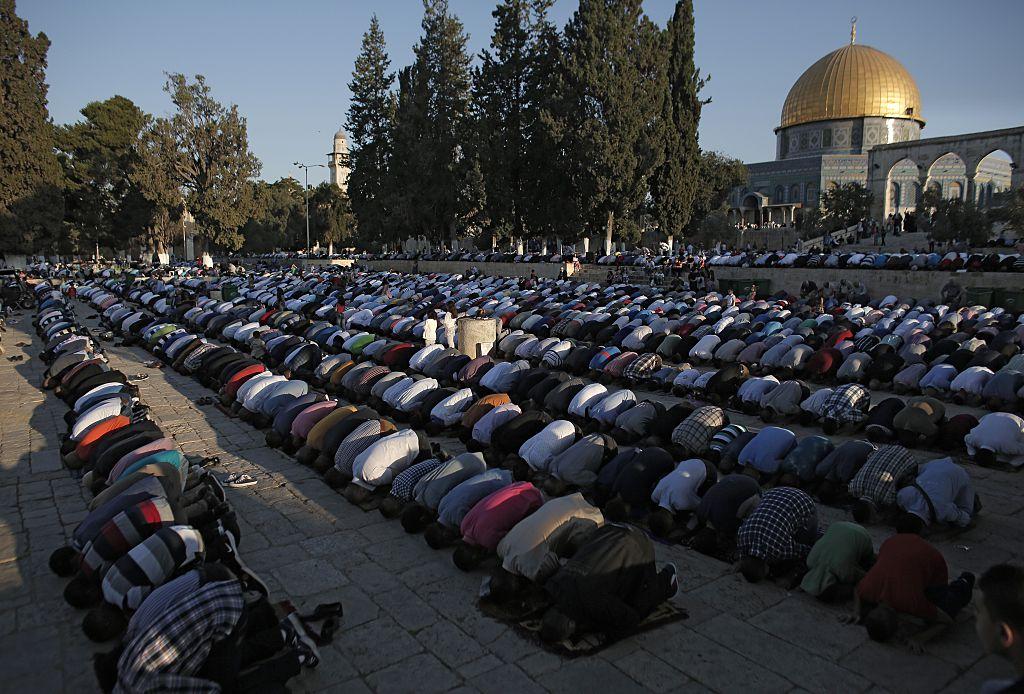Israel bill to limit Muslim call to prayer passes parliamentary first reading
Supporters say will improving the quality of life of people living near mosques while opponents say impinges on the religious freedom of Muslims

An Israeli law to limit the Muslim call to prayer from mosques has won preliminary approval though opponents have denounced the measure as racist.
One of the bills would ban summons to worhsip via loudspeakers between 11pm and 7am, effectively banning one of the first of five daily calls emanating from the mosques a little before dawn.
The second proposal would place a limit on the volume of loudspeakers in residential areas at all hours.
Supporters of the bill say it is aimed at improving the quality of life of people living near mosques who have been losing sleep, while opponents say the legislation, sponsored by right-wing parties, impinges on the religious freedom of Israel's Muslim minority.
Arabs make up almost 20 per cent of the population and have long complained of discrimination.
"You are committing a racist act," said Ahmed Tibi, an Arab lawmaker, told supporters of the legislation.
The proposed law refers in general terms to "houses of worship", but it has been dubbed the "muezzin law" by the Israeli media, in reference to the man who chants the Muslim call to prayer.
"This is a social-minded law that aims to protect citizens' sleep, without, God-forbid, harming anyone's religious faith," Motti Yogev, one of the bill's sponsors, said during a debate punctuated by shouting matches between the bill's backers and detractors.
Tzipi Livni, a leader of the centre-left Zionist Union party and a former foreign minister, said "proud Israelis" should join together in opposing legislation that would only "spread hate and ignite tensions" between Muslims and Jews.
During the heated debate, Arab legislator Ayman Odeh rose from his seat, with a copy of the bill in his hands. "This law will not be implemented, I am tearing it up," he said, as pieces of paper fell to the floor. He was ejected from the chamber.
The two versions of law won initial approval and will go to committee for further discussion before any final vote in parliament, in what could be a lengthy process.
Prime Minister Benjamin Netanyahu previously expressed support for the bill, saying "citizens of all religions" have complained about excessive noise from muezzins.
Under the proposed law East Jerusalem, which Israel captured in the 1967 Six-Day War and annexed in a move not recognised internationally, would be included in the ban.
But since the measure covers only residential areas, al-Aqsa mosque, Islam's third holiest site located in a religious compound in Jerusalem's walled Old City, would be exempt.
Last year, hackers took control of an Israeli news channel and broadcast the Muslim call to prayer in an apparent protest against the controversial bill.
Join our commenting forum
Join thought-provoking conversations, follow other Independent readers and see their replies
0Comments